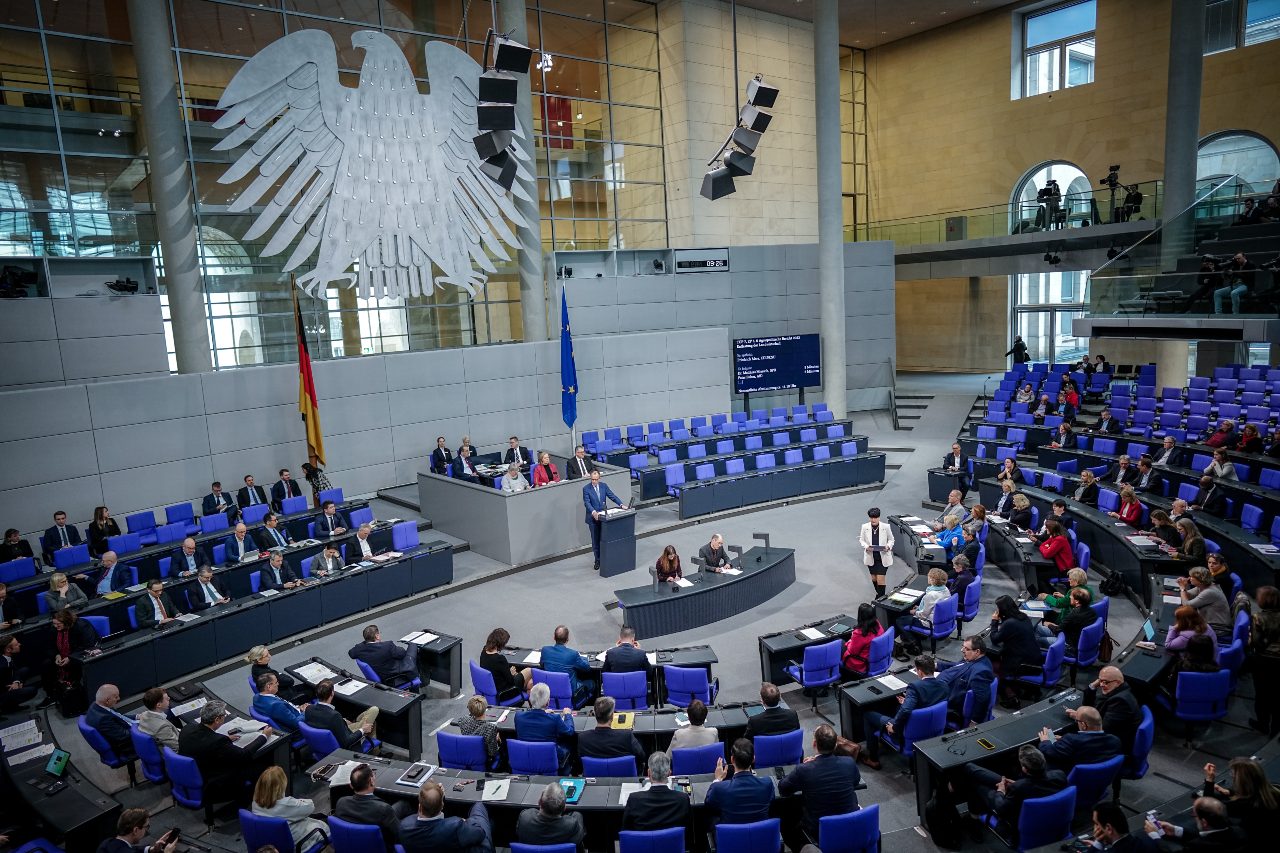Everything that changes in Germany in July 2024

From cannabis clubs and changes to cable TV connection fees to summer holidays and the Euro 2024 final, there are plenty of things happening this July in Germany that foreign residents should know about.
Cannabis clubs to be allowed in Germany
Germany's cannabis rules are being extended.
From July 1st, the next phase of the cannabis law will come into force, making it possible to legally obtain weed through "cannabis clubs".
These regulated associations will be allowed to have up to 500 members each, and will be able to distribute up to 50 grams of cannabis per person per month.
But it's worth noting that members will not be allowed to smoke weed in the clubs - they must be at least 100 metres away from the entrance area.
Since April 1st adults over 18 have been allowed to carry 25 grams of dried cannabis and cultivate up to three marijuana plants at home.
Cannabis remains banned for under-18s and within 100 metres of schools, kindergartens and playgrounds.
READ ALSO: What to know about Germany's partial legalisation of cannabis

Cannabis is partially legalised in Germany. Photo: picture alliance/dpa | Karl-Josef Hildenbrand
Drink lids must be attached to bottle
Plastic bottles with permanently attached lids have been available for several months now as part of aims to better protect the environment.
And from July 3rd, all manufacturers will have to change their ways, as loose caps will be banned on certain drinks.
The law applies to single-use packaging made entirely or partly of plastic - such as juice cartons or disposable PET bottles - with a volume of up to three litres.
School holidays start in several states
School pupils (and teaching staff) in Bremen, Lower Saxony, Saxony, Saxony-Anhalt and Thuringia start their summer holidays in the second half of June.
Other states will follow in July. Pupils in Bavaria have the latest start - they go off on July 29th.
Holiday resorts and popular routes are likely to be busier as families flock on vacation during the summer months.

A family sit at a lake in Bavaria. Image by Eva Mospanova from Pixabay
Summer construction works may cause problems
Those getting out on the road or railway network should be aware that there may be more construction works than usual.
Officials often use the summer months for upgrades.
A big one is due for the rail network - on July 15th, Deutsche Bahn begins the general refurbishment of the Riedbahn, which connects Frankfurt and Mannheim. The line will remain closed until December 14th. Trains will be diverted and there will be rail replacement services.
READ ALSO: Where to expect disruption due to rail upgrades in Germany this year
Keep an eye out on local announcements for road construction projects in your area.
UEFA Euro 2024 final in Berlin
Germany has been hosting the Euro 2024 tournament - and it will come to a dramatic close on July 14th.
That's when the final match will be played at Berlin's Olympiastadion.
A total of 24 teams are competing in the month-long tournament that sees 51 games played on 22 match days across 10 German cites.
Who's going to be in the final? We still have no idea but we bet it will be a great spectacle.
PODCAST: Countdown to citizenship law change, Euro fever and can the coalition survive?
Back box and assistance systems on new cars to be mandatory
From July 7th every newly registered car or commercial vehicle up to 3.5 tonnes in Germany must be fitted with an Event Data Recorder (EDR). Like a black box, this stores data that can be used to investigate an accident.
To prevent serious accidents, various driver assistance systems will also be mandatory in new cars coming off the production line from July.
German members of the Bundestag to get pay boost
This change will please the 734 members of the Bundestag - they are to receive 6 percent more money from July. Their parliamentary allowance will rise by €635.50 to a total of €11,227.20 per month.
The allowances are adjusted each year in line with the nominal wage development on July 1st. In addition to this amount, there is a tax-free expense allowance. This currently amounts to €5,051.54 per month. MPs must use this to cover all expenses, such as a constituency office or a second home in Berlin.
READ ALSO: This is how much German politicians earn in various parliaments

MPs in the debating chamber of the German Bundestag. Photo: picture alliance/dpa | Kay Nietfeld
Cable TV connection fees change
Up to now, the costs for cable TV connections were automatically passed on to many tenants by their landlord or housing company. The so-called service charge privilege made it possible to conclude more favourable collective contracts that were billed via the Nebenkosten - additional costs.
But this is changing. From July 1st, every tenant can decide for themselves how they want to watch TV: whether via the Internet, satellite or cable. Automatic bundled contracts within rental contracts will no longer exist.
Those who are affected and want more information should contact their landlord, a consumer rights' organisation or a provider to figure out their options as soon as possible.
READ ALSO: What to know about changes to cable TV fees in Germany this July
Truck toll fees extended
Tolls have been mandatory for certain vehicles since December 2023. And from July 1st, the regulation will be extended to include vehicles weighing 3.5 tonnes and above. Previously it applied to trucks weighing from 7.5 tonnes. The toll obligation applies to both domestic and foreign vehicles.
A number of exemptions are in place, however, including for rescue vehicles, fire services, civil protection and agricultural vehicles.
Pensioners to receive financial boost
In July, Germany's roughly 21 million pensioners can look forward to more money. Pensions will be raised by 4.57 percent in all federal states. The increase is based on new data from the Federal Statistical Office and the pension provider Deutsche Rentenversicherung.
A retiree receiving a pension of €1,000 will get an extra €45.70 per month under the change.
Some people who receive a reduced earning capacity pension will get a bigger boost - with a hike of 7.5 percent. However, this only applies to pensioners whose pension started between January 2001 and June 2014. If the pension commenced between July 2014 and December 2018, the increase in pension payments will be around 4.5 percent.
Well-known Berlin department store to shut its doors
Popular luxury French department store Galeries Lafayette will close its Berlin location to customers on July 31st. The store, located on Friedrichstraße in central Berlin, is the only branch in Germany.
The company said last year that the decision is due to "a consequence of changing consumer habits in Germany and significant changes in the city's retail market".
The store employs around 190 people.
Comments
See Also
Cannabis clubs to be allowed in Germany
Germany's cannabis rules are being extended.
From July 1st, the next phase of the cannabis law will come into force, making it possible to legally obtain weed through "cannabis clubs".
These regulated associations will be allowed to have up to 500 members each, and will be able to distribute up to 50 grams of cannabis per person per month.
But it's worth noting that members will not be allowed to smoke weed in the clubs - they must be at least 100 metres away from the entrance area.
Since April 1st adults over 18 have been allowed to carry 25 grams of dried cannabis and cultivate up to three marijuana plants at home.
Cannabis remains banned for under-18s and within 100 metres of schools, kindergartens and playgrounds.
READ ALSO: What to know about Germany's partial legalisation of cannabis

Drink lids must be attached to bottle
Plastic bottles with permanently attached lids have been available for several months now as part of aims to better protect the environment.
And from July 3rd, all manufacturers will have to change their ways, as loose caps will be banned on certain drinks.
The law applies to single-use packaging made entirely or partly of plastic - such as juice cartons or disposable PET bottles - with a volume of up to three litres.
School holidays start in several states
School pupils (and teaching staff) in Bremen, Lower Saxony, Saxony, Saxony-Anhalt and Thuringia start their summer holidays in the second half of June.
Other states will follow in July. Pupils in Bavaria have the latest start - they go off on July 29th.
Holiday resorts and popular routes are likely to be busier as families flock on vacation during the summer months.

Summer construction works may cause problems
Those getting out on the road or railway network should be aware that there may be more construction works than usual.
Officials often use the summer months for upgrades.
A big one is due for the rail network - on July 15th, Deutsche Bahn begins the general refurbishment of the Riedbahn, which connects Frankfurt and Mannheim. The line will remain closed until December 14th. Trains will be diverted and there will be rail replacement services.
READ ALSO: Where to expect disruption due to rail upgrades in Germany this year
Keep an eye out on local announcements for road construction projects in your area.
UEFA Euro 2024 final in Berlin
Germany has been hosting the Euro 2024 tournament - and it will come to a dramatic close on July 14th.
That's when the final match will be played at Berlin's Olympiastadion.
A total of 24 teams are competing in the month-long tournament that sees 51 games played on 22 match days across 10 German cites.
Who's going to be in the final? We still have no idea but we bet it will be a great spectacle.
PODCAST: Countdown to citizenship law change, Euro fever and can the coalition survive?
Back box and assistance systems on new cars to be mandatory
From July 7th every newly registered car or commercial vehicle up to 3.5 tonnes in Germany must be fitted with an Event Data Recorder (EDR). Like a black box, this stores data that can be used to investigate an accident.
To prevent serious accidents, various driver assistance systems will also be mandatory in new cars coming off the production line from July.
German members of the Bundestag to get pay boost
This change will please the 734 members of the Bundestag - they are to receive 6 percent more money from July. Their parliamentary allowance will rise by €635.50 to a total of €11,227.20 per month.
The allowances are adjusted each year in line with the nominal wage development on July 1st. In addition to this amount, there is a tax-free expense allowance. This currently amounts to €5,051.54 per month. MPs must use this to cover all expenses, such as a constituency office or a second home in Berlin.
READ ALSO: This is how much German politicians earn in various parliaments

Cable TV connection fees change
Up to now, the costs for cable TV connections were automatically passed on to many tenants by their landlord or housing company. The so-called service charge privilege made it possible to conclude more favourable collective contracts that were billed via the Nebenkosten - additional costs.
But this is changing. From July 1st, every tenant can decide for themselves how they want to watch TV: whether via the Internet, satellite or cable. Automatic bundled contracts within rental contracts will no longer exist.
Those who are affected and want more information should contact their landlord, a consumer rights' organisation or a provider to figure out their options as soon as possible.
READ ALSO: What to know about changes to cable TV fees in Germany this July
Truck toll fees extended
Tolls have been mandatory for certain vehicles since December 2023. And from July 1st, the regulation will be extended to include vehicles weighing 3.5 tonnes and above. Previously it applied to trucks weighing from 7.5 tonnes. The toll obligation applies to both domestic and foreign vehicles.
A number of exemptions are in place, however, including for rescue vehicles, fire services, civil protection and agricultural vehicles.
Pensioners to receive financial boost
In July, Germany's roughly 21 million pensioners can look forward to more money. Pensions will be raised by 4.57 percent in all federal states. The increase is based on new data from the Federal Statistical Office and the pension provider Deutsche Rentenversicherung.
A retiree receiving a pension of €1,000 will get an extra €45.70 per month under the change.
Some people who receive a reduced earning capacity pension will get a bigger boost - with a hike of 7.5 percent. However, this only applies to pensioners whose pension started between January 2001 and June 2014. If the pension commenced between July 2014 and December 2018, the increase in pension payments will be around 4.5 percent.
Well-known Berlin department store to shut its doors
Popular luxury French department store Galeries Lafayette will close its Berlin location to customers on July 31st. The store, located on Friedrichstraße in central Berlin, is the only branch in Germany.
The company said last year that the decision is due to "a consequence of changing consumer habits in Germany and significant changes in the city's retail market".
The store employs around 190 people.
Join the conversation in our comments section below. Share your own views and experience and if you have a question or suggestion for our journalists then email us at [email protected].
Please keep comments civil, constructive and on topic – and make sure to read our terms of use before getting involved.
Please log in here to leave a comment.